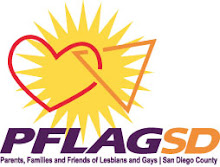Gender Blog by Darlene Tando, LCSW
This blog is about gender and all its intricacies… I will be blogging about latest research, reflections from my work with gender non-conforming and transgender clients, as well as information about resources.
The Gender Identity of Children
I am thrilled to be seeing more and more transgender children as part of my practice. To me, it's a very natural combination of two of my specialties: working with children, and working with transgender individuals! I have a special place in my heart for these gender nonconforming children, because I feel like in some way it's a way of honoring my adult transgender clients. For many of them, if not all, having their gender identity heard and addressed as children would have made their life paths a lot easier.
I've had people ask me if children can really understand their gender identity at a young age. My answer is, "of course!". Most of us know what gender we are from a very young age. We don't have to think much about it; our assigned gender matches our biological sex and becomes part of our stats, like where we live, what color hair we have, etc. For gender nonconforming/transgender children, this is not so simple. They may feel a discomfort with their body or assigned gender, pronouns, etc. However, typically this comes from being denied being able to partake in an activity or interest that is typically not seen as acceptable for one's assigned gender. For children who are not allowed to express themselves in their preferred gender, or the interests come naturally to them, I believe this creates a feeling of unrest (at best); deep shame and resentment at worst.
Children are concrete, and are more interested in what they want to DO and what kind of fun they want to have than abstractly thinking about what gender or societal category they fit into. Additionally, children don't have the baggage and the tendency to over-think the way we adults do. They know what they know, and they feel what they feel. In some ways this makes expressing one's gender identity much simpler, especially if the child is in an environment that encourages natural and genuine expression of self. If a child engages in play that society does not typically categorize as that of their assigned gender, let them. This behavior could mean any number of things, but the most important message is "you are ok any way you are". Some parents worry about future teasing, and discourage them from engaging in behaviors to prevent teasing in other environments. This is a valid concern which I don't mean to minimize. Certainly the parents can explain the likely response of others (informed consent, if you will) and then equip, equip, equip with coping skills to deal with these responses. (Helping your gender nonconforming child deal with teasing is such an important topic I promise to address it more in a future blog.) For now, I will say that beyond equipping your child to deal with teasing, establishing that pure and unconditional acceptance at home is the most crucial part of growing up.
Most gender nonconforming children understand "the rules", and the expectations in their family/society/community/school. They may know how they feel and who they are, but most also understand what others think and what others want. They learn to "play the game" as we all do, giving answers to make others feel better, even when it's not the truth. Parents unknowingly ask leading questions all the time, and kids know what their parents want to hear.
Additionally, some children simply don't have the verbal skills to express what they want or how badly they want it. Other children are not aware of their gender incongruence until puberty (at which times it often becomes a feeling of crisis). Many people are not aware until adulthood! This blog is specifically in regards to children who have their gender incongruence present in their consciousness from a very early age.
If your child who was born a biological female says "I'm a boy", "I wish I were a boy", or asks Santa for a penis, listen up. If your biological male says "I'm a girl", "I wish I were a girl", or prays to wake up the next morning a girl, listen up. These children know how they feel, and need your help. I'll be writing more blogs about what to do if you are a family in this situation… stay tuned.




No comments:
Post a Comment
Thank you for your comments.